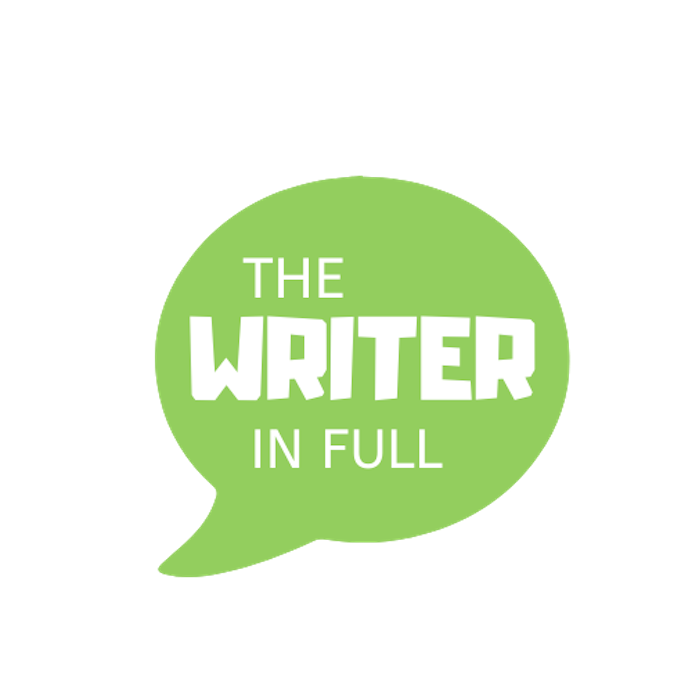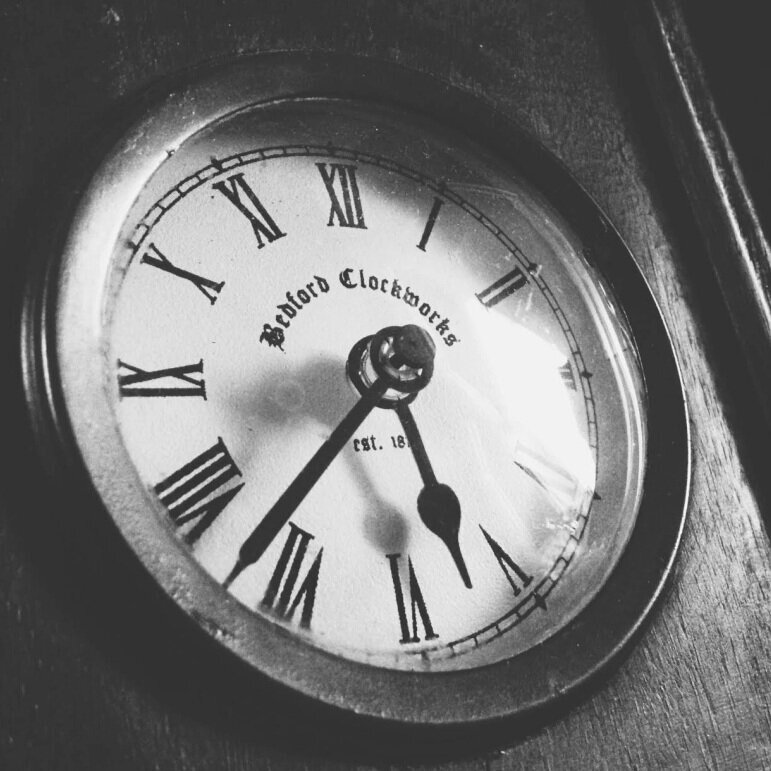Should I Get an MFA in Creative Writing?
I get asked this question semi-regularly by clients, friends, and strangers on the Internet. Probably, it’s because I am the (occasionally rueful) owner of a bachelor’s degree in creative writing and a master’s degree in journalism, so folks are under the mistaken impression that I know what I’m talking about.
My, is this a tough cookie to crack. Or was that a walnut to crumble? At any rate, yes: the Great Creative Writing MA/MFA debate. Who is an MA/MFA right for? What will it actually get you? And: Can’t you learn this stuff outside a classroom for a lot less money?
These are questions whose answers come packaged in complex, crunchy shells, filled with lots of gooey, melty mitigating factors.
If a writer shows promise, should he or she pursue a guided, degree-seeking study of the craft of creative writing in an academic setting?
I’m of two minds on the subject. Or, rather, I’m of two organs.
But first, a point of clarification: I’m not going to unpack and examine the potential usefulness of a bachelor’s degree in creative writing. At this moment in our history, any liberal arts undergrad degree you pursue is going to require additional graduate study, internship or considerable work experience to be useful. All but the most straightforward of degrees will, so unless you have clear designs to become an accountant, or teacher, or legal secretary, or some other abidingly practical thing, follow that often-referenced bliss! And know that you’ll likely be heading back to those hallowed halls for a master’s degree in short order anyway, and it will likely need to be in something more focused and down-to-earth.
So, yeah. The Creative Writing MFA. Should you?
My heart whispers, “Yes, absolutely!”
When will you get another chance to spend 1-3 years fully immersed in the practice of writing, surrounded by other serious, committed folks who are equally passionate about writing, and basking in the daily tutelage of the wise and talented writers who will serve as your professors? It will be magical and you will grow as a writer and as a human being in ways you cannot imagine, and, hang the odds, this is an investment in yourself, and your passions, and your talents!
My gut screams, “Noooooo! Run, don’t walk, oh literate friend, in the other direction, and make it quick!”
Here’s why: These programs are very expensive, it is often difficult to secure a full scholarship or tuition waver, student loan interest rates are unconscionably high, and, regardless of who becomes president, those debts are unlikely to be discharged anytime soon.
And, really, can anybody point to an obvious career or financial incentive to earning an advanced degree in a topic as ephemeral as creative writing? Realistically, when all is said and done, will a master’s degree in creative writing actually give you a better shot at writing for a living than you stood when you had nothing to go on but your native talents and those good looks?
Yes, I’m hedging, here. So let’s ask a bigger question: What are you expecting that degree to do for you?
Checklists are good for bringing a little levity to stormy existential quandaries such as this, so let’s make one.
Is an MA/MFA in Creative Writing Right for Me?
Do you meet at least six of the following criteria? If so, you might be a good candidate for an MA/MFA in creative writing.
I …
· have a large savings account, generous parents, or a generous spouse; or, can secure a scholarship or teaching/research assistantship that will cover tuition, health insurance, and at least half of my living expenses.
· am seriously considering pursuing a PhD.
· would be happy spending the majority of my career teaching and/or researching and a minority of it actually doing creative writing.
· have located a program in an affordable or highly connected city, or, better yet, in my own city.
· thrive under structure and enjoy learning from those who are considered experts.
· can probably pass the GRE. Most MA/MFA programs still require a minimum GRE score for consideration of admission. And not just the reading and writing bits (although those require more prepping and brushing up than you might suspect); often, they’ll look at your score on the math part, too, so it can’t be totally abysmal.
· have a respectable GPA from undergrad and didn’t find undergraduate studies too difficult.
· am stimulated and inspired by regular interaction with and critique from an honest group of my writing peers.
Do you meet at least three of the following criteria? If so, you should probably bag the MA/MFA plans.
I …
· am not sure how I’d fund graduate study.
· am interested in an MA/MFA mainly because I’m sick of my job but can’t find another one and am desperate for a change.
· consider my writing my “art” and refuse to compromise or “sell out” in any way in order to succeed.
· have no interest in teaching or in pursuing a PhD.
· am a self-directed learner and have in the past attained basic mastery of somewhat-complex subjects through independent study, such as: foreign languages, coding, photography, cabinetry, car repair, etc.
· don’t require structure to be productive.
· struggled in undergrad to focus and keep up with the workload.
· struggle with critique and feel deeply hurt when something I write isn’t received well.
The lists above are fairly self-explanatory, so I’m going to let them do the heavy lifting.
If you meet a large number of the criteria in the first list, you might be a good candidate for graduate study.
If you meet even a handful of the criteria outlined in the second list, the truth is you could probably learn just as much by seeking out an active, functional writing critique group; signing up for evening or weekend writing classes through your local community college or community center; reading everything you can find on the subject of writing; buckling down to a bit of auto-didacticism; and enlisting the services of a good editor and writing coach.
[If you don’t meet the criteria on either list, I think you might be reading this blog post by mistake, and I’m not really sure what you’re doing on my website, but you’re welcome to hang out if you’re entertained by all this existential fretting.]
BUT, WAIT! Here comes the Big Buts Parade! I can see them now, marching their ample bottoms right on up and over the horizon!
Let’s give them their due, shall we?
BUT what if I’m a really talented writer? That’s awesome, and I love you for it! It’s right and good to nurture talent, and humility is sort of overrated anyway. But bear in mind that talent won’t always keep the lights on. It doesn’t render an impractical choice magically more practical. It doesn’t mean you’ll get a scholarship or an assistantship, because natural talent isn’t the exception, but, rather, the minimum requirement for advanced study in creative writing. And when you’re done, talent won’t guarantee you a book contract or a bigwig publishing job or even that you’ll get back your old job as a barista if worst comes to worst. Talent matters, yes, but it’s just a factor in a bigger equation. Something else to ponder: If you are really and truly already a damned fine writer, why do you need a graduate degree in writing?
BUT what if I compromise with an online program? Yes, they are more convenient and occasionally even more affordable than their analogue counterparts. Yes, online education is the wave of the future, according to a whole bunch of people with a lot of acronyms after their vaguely aristocratic-sounding last names. But keep in mind that many creative writing programs emphasize workshop-style courses for the obvious reason that they provide instant feedback from a ready-made writing community. You will not get this in the same measure from an online program or virtual discussion boards, nor will you get the same level of access to your professors as you’d likely have in real time. Online programs are not a happy medium. They are a more convenient, less structured, but likely equally expensive pursuit as a traditional MA/MFA.
BUT what if I value education for education’s sake? It’s hard to argue with this one, and I wouldn’t presume to try. Because I value it, too. Education is priceless in so many ways. It changes you, emotionally, physically, permanently. In other ways, though, it’s far more price-ful than priceless. Sad but true: The United States doesn’t care to offer free or even somewhat-affordable educations to its citizens. And this is unlikely to change anytime soon. On a practical level, making the MA/MFA choice isn’t only about what we value. It’s about what’s going to make our lives as writers better and what’s going to end up feeling, instead, like a very expensive lark. Hearty enthusiasm for the endeavor of advanced creative writing education doesn’t translate to a reduction in your student loan interest rate, or a bump in your starting paygrade (usually). Think carefully.
BUT what if I still really, really want an MFA, even though I agree that it’s totally irrational? Again, who am I to argue? I was in your shoes once, and it’s why I’ve got an MA in journalism. Am I working as a journalist ten years out from grad school? Part of the time, and increasingly less. I don’t wish I’d chosen differently, necessarily. But I do wish I’d chosen more wisely, and with a better sense of the practical implications of my choice. That is also my wish for you, whatever it is you decide to do. If you must absolutely have a writing-related higher degree, I urge you to consider journalism, public relations, digital marketing, applied linguistics, library and information sciences, a teaching credential, or another writing-adjacent degree with a more obvious practical application.
BUT what if I applied already and didn’t get into any of the programs I wanted, but I’m STILL not ready to give up on my dream? Pout for a few weeks (you are allowed), have evil thoughts about the candidates who beat you out (you are allowed), then take the rejection as a sign. Not as a sign that you are a no-good writer and should quit immediately, but as a sign that the structured environment of an MFA might not be right for you and your goals. Admissions committees are looking to admit students they believe stand a reasonable chance of surviving and even thriving in the program. They have all sorts of mysterious formulas for gauging this suitability, some of which take in to account your talent as a writer and some of which are concerned with other factors entirely. Such is life, and rejection is part and parcel to the writing life. Delete/recycle those rejection letters, do a bit of soul searching, and retool your plans.
Trust me: there’s far more than one way to skin the writing cat.





